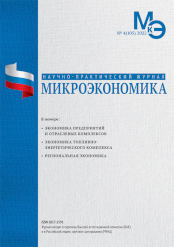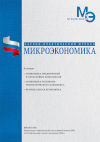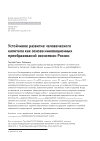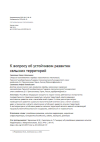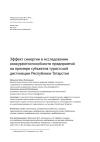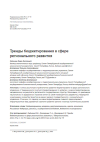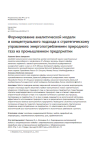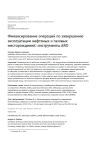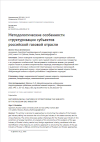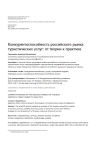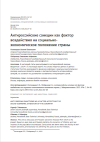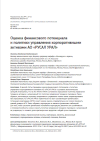Sustainable development of human capital as the basis for innovative transformations of the Russian economy
DOI: 10.33917/mic-4.111.2023.73-81
Considers the sustainable development of human capital as the basis for scientific and technological transformations of the Russian economy. The importance of considering this problem is due to the fact that innovative development, ensuring the technological security of the state, directly depends on the people who are called upon to solve this problem, on the level of human capital, the bearer of which they are. The aim of the study was to assess the relationship between innovation activity and the level of human capital, to study the state of the main components of human capital, to identify problems and possible solutions. In the course of the study, general theoretical methods were used: analysis, synthesis, induction and deduction. The analysis showed that the global leaders in the field of innovation also occupy strong positions in terms of the level of human capital, and this trend is also typical for Russian regions. The study indicated the presence of a number of problems in the development of the main components of human capital, which, to a certain extent, is due to a decrease in federal budget spending on the main areas directly related to the development of human capital. A possible solution to the identified problems is proposed through the development and adoption of a comprehensive state program for the formation and development of human capital.
References:
1. Decree of the Government of the Russian Federation dated May 20, 2023 No. 1315-r “On approval of the Concept of technological development for the period up to 2030”. URL: https://www.consultant.ru/document/cons_doc_LAW_447895/
2. Global Innovation Index 2022
3. Rating of regions by scientific and technological development – the results of 2021. URL: https://riarating.ru/infografika/20221024/630231634.html
4. Human development index in Russia: regional differences. URL: https://ac.gov.ru/uploads/2-Publications/analitika/2022/_2021_long.pdf
5. Most educated countries in 2023. URL: https://translated.turbopages.org/proxy_u/en-ru.ru.822d3c45-64ae8608-e9b7ec27-74722d776562/https/worldpopulationreview.com/country-rankings/most-educated-countries
6. Information and analytical materials based on the results of monitoring the activities of educational institutions of higher education. URL: https://monitoring.miccedu.ru/?m=vpo&year=2021
7. In 2022, the size of the market for additional professional education in Russia decreased by 3.8%: from 824 to 793 million acad. hours. URL: https://businesstat.ru/news/additional_professional_education/
8. Demographics. URL: https://rosstat.gov.ru/folder/12781
9. Life expectancy in Russia rose to a record high after a two-year decline. URL: https://www.rbc.ru/economics/26/03/2023/641f04989a7947c736e37524
10. On the results of the work of the Ministry of Health of the Russian Federation in 2022 and tasks for 2023. URL: http://medinvestclub.ru/wp-content/uploads/2023/04/About-results-of-work.pdf
11. The main directions of the budget, tax and customs tariff policy for 2023 and for the planning period of 2024 and 2025. URL: https://minfin.gov.ru/common/upload/library/2022/10/main/Osn_2023-2025.pdf


